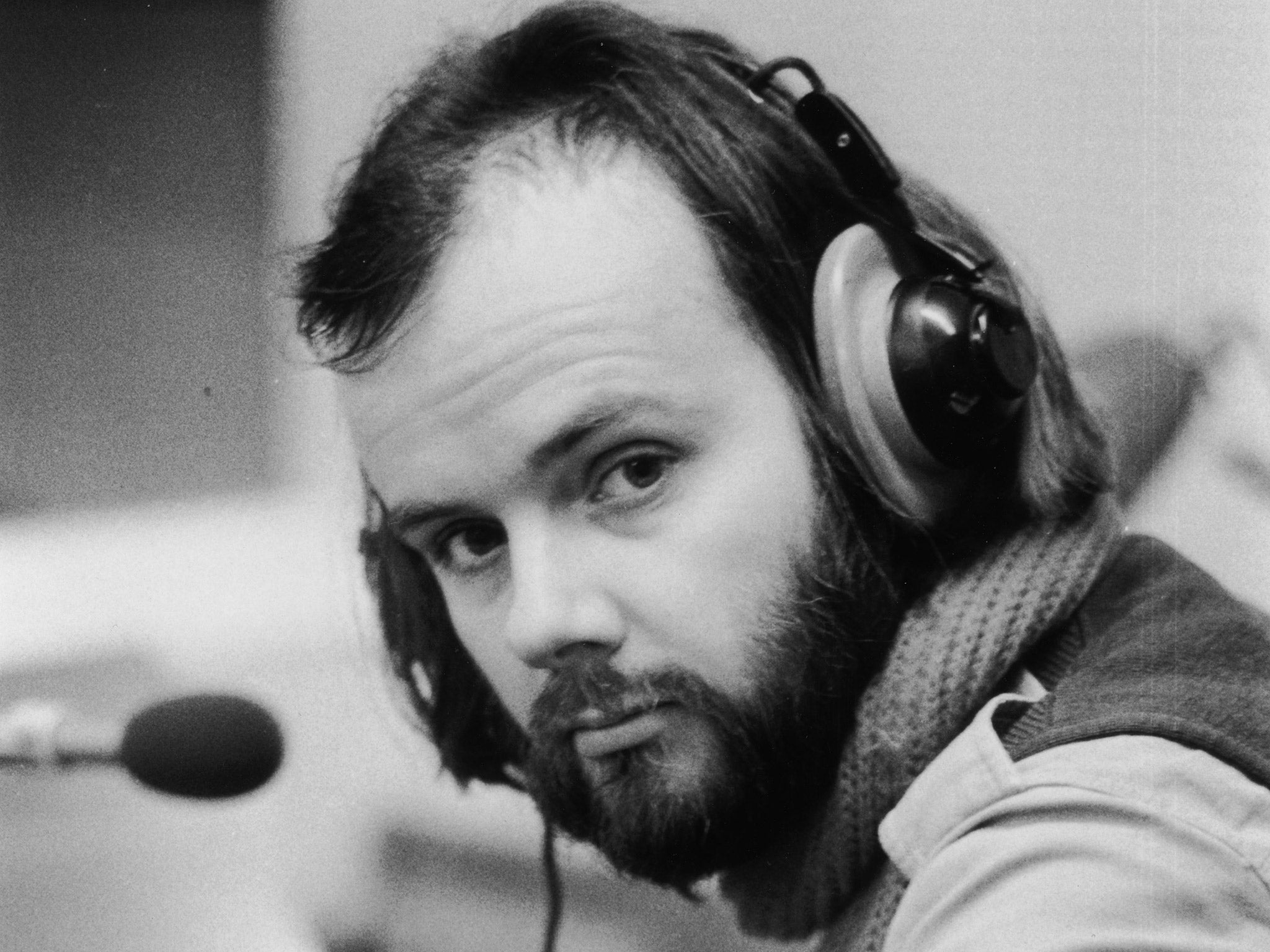Fiona Sturges: 'The teary tributes to John Peel make me feel queasy - you'd think the BBC would have learned its lesson by now'
The late broadcaster was this week the subject of an adoring Radio 1 documentary called How John Peel Changed My Life, which featured Annie Nightingale, Rob Da Bank, Huw Stephens and Michael Palin

Your support helps us to tell the story
From reproductive rights to climate change to Big Tech, The Independent is on the ground when the story is developing. Whether it's investigating the financials of Elon Musk's pro-Trump PAC or producing our latest documentary, 'The A Word', which shines a light on the American women fighting for reproductive rights, we know how important it is to parse out the facts from the messaging.
At such a critical moment in US history, we need reporters on the ground. Your donation allows us to keep sending journalists to speak to both sides of the story.
The Independent is trusted by Americans across the entire political spectrum. And unlike many other quality news outlets, we choose not to lock Americans out of our reporting and analysis with paywalls. We believe quality journalism should be available to everyone, paid for by those who can afford it.
Your support makes all the difference."Hi, I'm Iggy Pop," said Iggy Pop at the start of the fourth John Peel Lecture, as if the endless trails, the adoring preamble and his own laconic drawl hadn't already given him away.
Pop, the new hero of British radio thanks to his Sunday afternoon show on BBC6 Music, had called his speech Free Music in a Capitalist Society.
Broadcast in the early evening, it came with warnings of strong language – because ripe words are the very least you can expect when you ask one of the most dissolute rock stars of his time to address the nation.
Much like Charlotte Church's lecture last year, Pop used his own experience of being mistreated by The Man to examine the modern-day music business and the problems at its cold, dead heart. And he certainly wasn't fearful of biting the hand that fed.
"I always hated radio and the jerks that pushed that shit music in my tender mind," he began, at roughly the same point that BBC6 Music commissioners wondered when they'd be collecting their P45s.
Pop went on to talk about the "schemers" that populate the music industry which he described as a "pond [that] while wide is very shallow". He told of his own "lifetime commitment to continue playing no matter what", of the utopian ideals of the Stooges in the early years, of his friendship with the Ramones and the importance of musical study, which in his case came via a job at a record discount store in Michigan.
Pop brimmed with character, wisdom and wit – "Stay away from drugs... and talent judges," he tittered – so much so that it was easy to forgive the inconsistencies of a speech that exhorted young musicians not to get hung up on money, while suggesting other ways of making a living.
"How about selling car insurance?" he hooted. "At least I'm honest. It's an ad and that's all it is." And who can begrudge the Godfather of Punk for wanting to live comfortably in his dotage?
Pop also paid tribute to John Peel, the radio DJ after whom his lecture was named. There's no doubting that Peel meant a great deal to a lot of people, not least the multitude of bands that he championed and the millions of ears – mine included – that he fine-tuned.

Watch Apple TV+ free for 7 days
New subscribers only. £8.99/mo. after free trial. Plan auto-renews until cancelled

Watch Apple TV+ free for 7 days
New subscribers only. £8.99/mo. after free trial. Plan auto-renews until cancelled
But I'm uneasy at the BBC's continued beatification of the broadcaster, who this week was also the subject of an adoring Radio 1 documentary called How John Peel Changed My Life, in which the likes of Annie Nightingale, Rob Da Bank, Huw Stephens and Michael Palin paid teary tribute.
It's worth remembering that this was a man who married a 15-year-old in the US (which, at the time, was legal in Texas) when he was in his mid-twenties, and who was later discovered to have had at least one other relationship with an underage girl in the UK. And let's not forget his Schoolgirl of the Year competition on his Radio 1 show in the early Seventies.
Does Peel's lofty cultural standing mean that, even posthumously, he's protected from the opprobrium meted out to fellow broadcasting "personalities"? Is his legacy so sacred that his questionable behaviour around young girls should be ignored?
This certainly seems to be the case with countless rock stars whose dubious dalliances in the Seventies are routinely glossed over – or worse still, excused as an acceptable part of the rock'n'roll package.
Still, in the case of Peel, you'd think the BBC would have learned its lesson by now.
Join our commenting forum
Join thought-provoking conversations, follow other Independent readers and see their replies
Comments